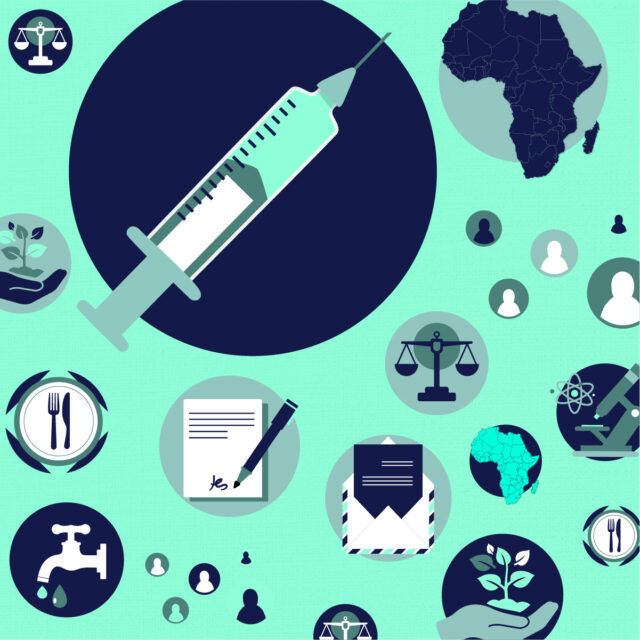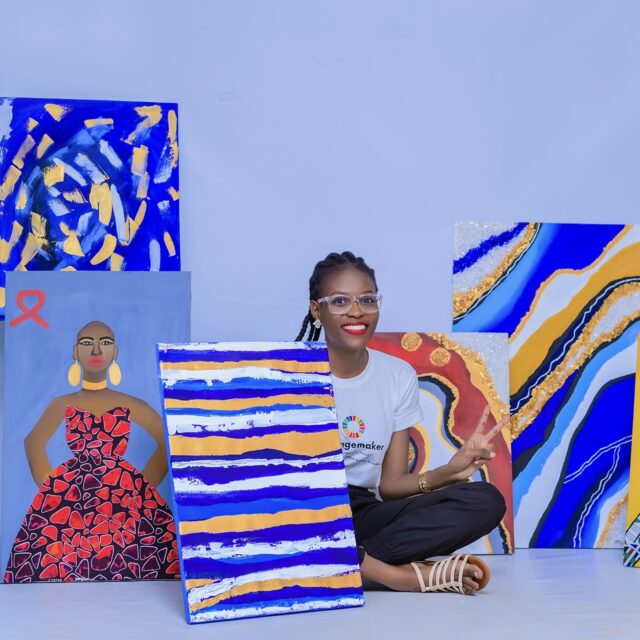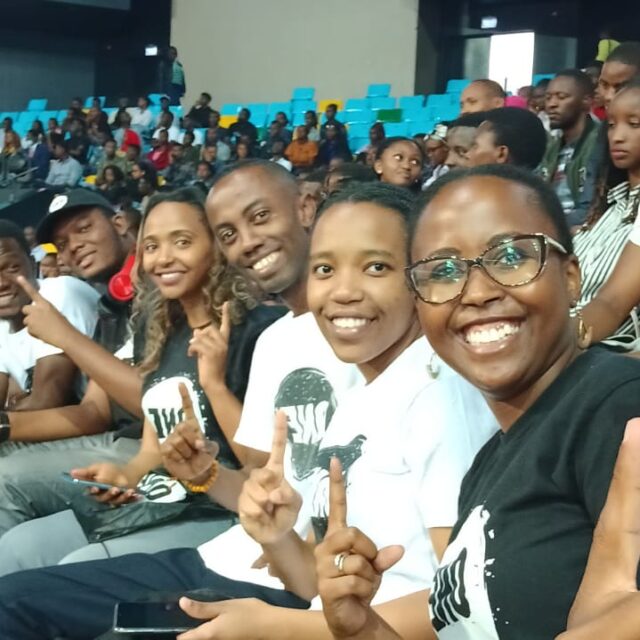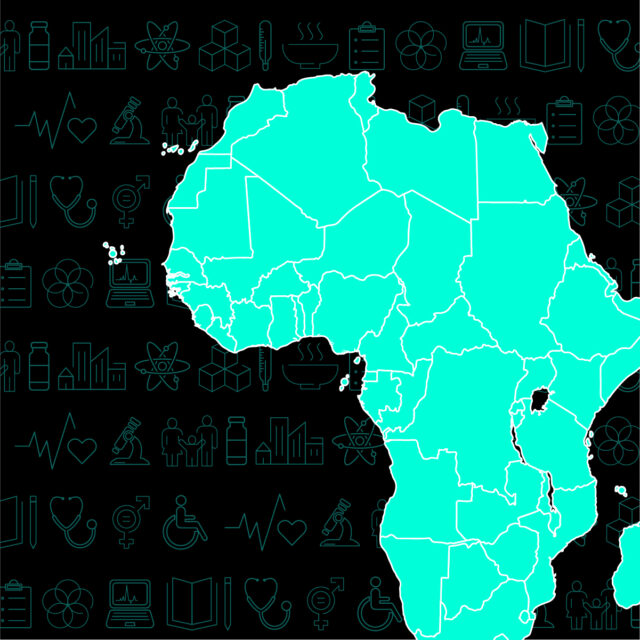Top news
Turning point: This week’s G7 summit needs to be a “turning point” in the race to vaccinate the world against COVID-19. Joe Biden played the first card as he boarded Air Force 1 on Wednesday, promising to announce a major plan to vaccinate the world (more on that later). At ONE we’re joining 200 world leaders in calling for the G7 to do whatever it takes to beat the virus everywhere, starting with immediately sharing at least 1 billion of their surplus doses by September. Early indications suggest G7 leaders may announce recycled commitments some of which won’t be delivered until next year. That will not be good enough.
Last ditch battle: The crucial summit in Cornwall comes as Africa is facing a last ditch battle against a third wave of infections. Eight African countries have seen a 30% rise in cases in the past week, with Uganda reporting a staggering 131% increase. This surge could be devastating to Africa’s fragile health systems. Meanwhile, although vaccines administered in Africa this week hit their highest daily rate so far, the WHO warned that imports of vaccines to the continent are starting to dry up, as nearly 20 African countries have already used up more than two-thirds of their supply. This is largely due to the Indian government’s ban on vaccine exports; COVAX has received only 30 million of the 200 million doses it ordered from India’s Serum Institute.
Not Biden his time: The US will pledge to donate 500 million doses to COVAX. The jabs (200 million this year, 300 million next) will go to 92 low- and lower-middle income countries, including all AU member countries. Speaking last week on the US administration’s rationale for dose sharing, ONE CEO Gayle Smith (currently seconded to the USG to coordinate the US global COVID-19 response) said “our goal is to end the pandemic and maximise the supply as quickly as we can.” Bravo.
Local boost: Both Senegal and Egypt will start producing COVID-19 vaccines in a boost to Africa’s drug-manufacturing ambitions. Senegal agreed a deal with Belgian biotech group Univercells to produce doses, while Egypt will start production of the Chinese vaccine Sinovac from mid-June. BioNTech also announced it’s planning an expansion into Africa, aiming at setting up mRNA vaccine production facilities on the continent within the next four years. Africa currently imports 99% of the doses it uses, so increasing local production is a key long-term challenge.
Master plan: The Mastercard Foundation this week committed $1.3 billion to support the Africa CDC’s vaccine rollout. The partnership will help vaccinate 50 million people, and support the AU’s goal of reaching 60% of the population by 2022. It will invest heavily in logistics and distribution, supporting the AU’s vaccine procurement facility and job creation in vaccine production. G7 leaders and others in the private sector should follow this example and treat this pandemic like the emergency it is.
Shortfall: East Africa’s largest economies are planning to borrow at least $16 billion to help fund their pandemic recovery. Kenya, Uganda, and Tanzania are facing a combined budget shortfall of about $16.4 billion, which they’re hoping to fill with internal and external borrowing. Tanzania is in talks with the IMF to secure a loan of up to $570 million to tackle COVID’s aftershocks.
Inflated threats: Rising prices in major economies are posing a serious economic threat to developing countries. Inflation, especially in the US, could push the cost of borrowing for low-income countries to “dangerously high levels.” Low-income countries already pay over the odds to access finance, which has made it much harder for them to support their economies during the pandemic; developed economies pay on average less than 1% interest rates, while developing countries pay 11.8%.
What the hell?: The UK government is planning to end bilateral aid to more than 100 countries and territories, including the entirety of northern Africa. This has sparked a spirited rebellion from MPs (who are trying to force a vote to reverse the cuts), with David Davis calling the decision “morally devastating.” Not a good look (to say the least) for G7 summit host Boris Johnson, who is expected to urge his fellow leaders to “rise to the challenge” of vaccinating the entire world by the end of next year. As the only G7 country cutting aid this year, you have to wonder what this means for the UK’s global reputation. As one senior Washington Post columnist simply put it, “What the hell?”
SDR you serious?: In a further (outrageous and unprecedented) move, the UK may also use its share of Special Drawing Rights as part of its already slashed aid budget, which could mean even more cuts. The IMF is expected to issue a new allocation of $650 billion in SDRs (a type of reserve currency), and ONE is calling for these assets to be fully redistributed to low-income countries to help them recover from the pandemic.
Sputnik lifts off: Russia’s Sputnik Light vaccine has been approved for emergency use in the Republic of the Congo. The manufacturers of the single-dose shot, the Russian Direct Investment Fund, say it’s 79.4% effective against COVID-19, can be stored in a normal refrigerator, and costs less than $10 per dose.
Tax matters: Last week, G7 finance ministers agreed to establish a minimum 15% global corporate tax rate, but some are criticizing the deal for not going far enough. Countries have long cut tax rates in an effort to attract large multinationals, a practice particularly damaging to low-income countries. While this deal could mark the beginning of the end of this global race to the bottom, the G7 agreement could unfairly benefit rich countries and increase inequality.
Blocked: The Nigerian governments suspended Twitter’s activities, in a worrying move for freedom of expression and access to information. TV and radio stations were warned not to use the platform to gather information. Amnesty International’s Nigeria branch condemned the move, calling on the government to “immediately reverse the unlawful suspension and other plans to gag the media, repress the civic space, and undermine Nigerians’ human rights.”
Intellectual property fights: After a year of minimal action and denying low-income countries debt relief, World Bank President David Malpass bizarrely came out against a temporary waiver on COVID related intellectual property rights, a move backed by all low-income and African countries, which Malpass has a mandate to support. With only the EU, UK, Switzerland, and South Korea firmly opposing the waiver, and French President Macron this week coming out in favour, the TRIPS Council agreed on Wednesday to proceed to text-based negotiations, the next step to an agreement.
Ultimate sacrifice: The economic impact of COVID-19 lockdowns can potentially lead to dramatic increases in child mortality in low-income countries, counteracting the lives saved by the lockdown. New data from the World Bank shows that in low-income countries, a lockdown can lead to 1.76 children’s lives lost per COVID-19 fatality averted.
The numbers
- 965,764: Vaccinations in Africa on 6 June, the highest yet.
- 12,928: Daily confirmed cases across Africa in the week to 7 June, the highest since mid-February.
- 53.4%: Unemployment rate among Nigerians aged 15-24.
- 376%: The increase in Ethiopia’s national budget in the past 10 years. Ethiopia’s Council of Ministers approved a record 561.7 billion Birr ($13 billion) budget this week.
Other reads
- Female journalists are underrepresented in the media, and this is especially true in COVID-19 coverage. Aftershocks is teaming up with the Africa Women Journalism Project to elevate voices typically left out of the conversation. Look out for these pieces of data-driven journalism over the coming months.
- Public Citizen outlines a path to producing 8 billion mRNA vaccine doses by May 2022, enough to cover 80% of the global population.
- The Tony Blair Institute for Global Change outlines how policymakers can increase vaccine uptake.
- Prioritising gender equality can help us build back stronger from COVID-19. New data from the Gates Foundation presents solutions that help women benefit everyone.
- Should low-income countries pay twice for rich countries’ hoarding of vaccines. No says Charles Kenny.
- Should European countries vaccinate teenagers before sharing doses with low-income countries? Politico looks at the moral dilemma facing Europe.
- COVID-19 has had severe implications for peace and security in Uganda, including exacerbating food insecurity. Jonas Mbabazi analyses the situation.
- Congolese locals have been digging for cobalt, but are getting almost none of the profit.



